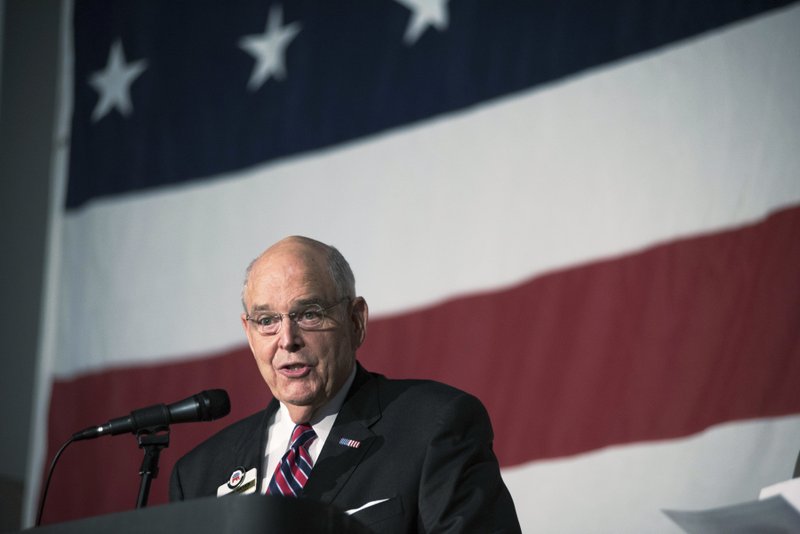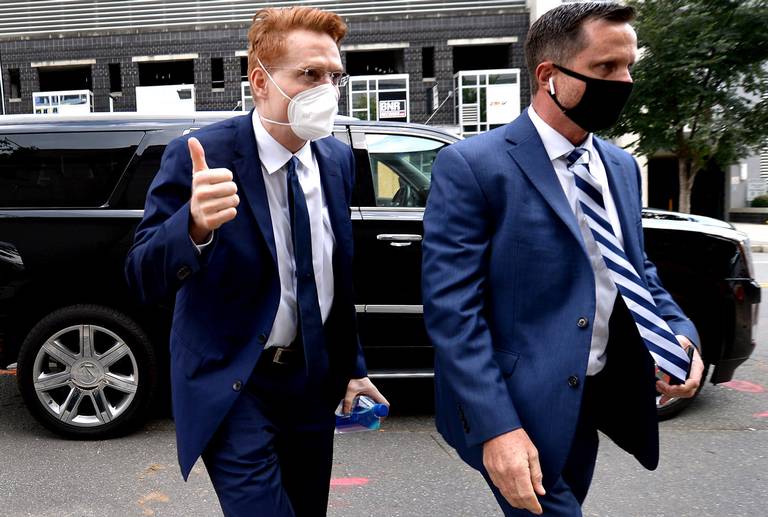Due to coverage implemented by the Affordable Care Act in 2014, more Americans were able to obtain coverage in 2015, according to a study by the Commonwealth Fund.
Sarah Collins is the Vice President for Healthcare Coverage and Access for the foundation. She said in North Carolina alone, 400,000 people gained health insurance last year.
“People in North Carolina who have family incomes under $50,000 have made gains and coverage and access to care as well,” she said. “So the uninsured rate of people in that income range has dropped from about 42 percent in 2013 to 32 percent in 2015.”
The 10 percent difference is one of the smallest nationwide, with Kentucky’s number of insured climbing 25 percent higher. Collins said the available subsidies that help pay for plans in the marketplace are to thank for the spike in coverage.
“Most people who are buying coverage on their own through the marketplaces are getting a subsidy to help them pay for that coverage,” she said. “And that has just made a dramatic difference in people’s ability to access both insurance and being able to afford insurance, many people for the first time. And being able to access the healthcare they need in a timely way.”
But the Affordable Care Act faces an uncertain future, as the new administration will have to decide whether to keep, amend or get rid it of it altogether. Collins said this would leave many people without health insurance.
“The repeal would mean a loss of a lot of subsidies that most people who are buying coverage on their own in North Carolina are getting to help them afford that care,” she said. “That was kind of the point of the Affordable Care Act, to allow people to afford care through subsidies.”
She also said requiring people to obtain insurance keeps them from only attempting to get it when they are already sick and keeps insurance companies from then turning them down.
“Having people come into the health system when they need care other than waiting until they’re very, very sick is better for everybody and keeps costs at a steady rate of change rather than big jumps when people come into the system when they’re very ill,” Collins said.
The Commonwealth Fund health care evaluation also found that the percentage of uninsured children has gone down, and that people in most states were less likely to say that costs stopped them from going to the doctor when they needed healthcare.
Related Stories
‹

North Carolina GOP Chair, Major Donor Charged with BriberyThe chairman of North Carolina’s Republican Party, an insurance magnate and two of his associates are facing federal charges for a plan to shower the state’s top insurance regulator with campaign contributions to ensure special business treatment, a criminal indictment unsealed Tuesday said. State GOP Chairman Robin Hayes and insurance and investment firm founder Greg […]
![]()
Taliban-Style Security Welcomed by Some, Feared by OthersWritten by KATHY GANNON It wasn’t 7 a.m. yet and already the line outside the police station’s gates was long, with men bringing their complaints and demands for justice to Afghanistan’s new Taliban rulers. Something new they immediately found: The Taliban fighters who are now the policemen don’t demand bribes like police officers did under […]

NC Political Donor Who's Going to Prison Defiant in LetterAn insurance company founder and big political donor heading to prison after being convicted of attempting to bribe North Carolina’s top elected regulator of the industry remains confident he’ll get a new trial or overturned conviction. In a letter sent this week to his company’s executives, employees and customers, Greg E. Lindberg said he “never […]
![]()
NC Political Donor Lindberg Gets 7 Years in Prison, Hayes ProbationA major political donor convicted of attempting to bribe a North Carolina elected official to secure preferential regulatory treatment for his insurance business was sentenced Wednesday to more than seven years in prison. Billionaire businessman Greg E. Lindberg was handed his sentence by U.S. District Judge Max Cogburn just hours after Cogburn gave probation to […]
![]()
Major North Carolina Donor Greg Lindberg Convicted of Bribery, ConspiracyA Durham billionaire and major political donor has been found guilty of trying to bribe a North Carolina insurance regulator in hopes of reducing scrutiny of his business. A federal jury convicted insurance magnate Greg Lindberg on Thursday of conspiracy to commit honest services wire fraud and bribery concerning programs receiving federal funds, according to […]

Former NC GOP Head Pleads Guilty to Lying in Bribery CaseThe former chairman of North Carolina’s Republican Party admitted Wednesday that he broke the law by lying to federal agents about his role in an alleged effort to bribe the state’s top insurance regulator to help a major GOP donor. Robin Hayes, 74, pleaded guilty to making a false statement in August 2018 to FBI […]

Documents: Ex-GOP Chair for North Carolina to Plead GuiltyA former North Carolina GOP chairman will admit in court that he lied to federal agents conducting a bribery investigation of a major political donor, according to court documents filed Friday. The federal court docket shows that Robin Hayes is scheduled to enter a guilty plea next Wednesday. Hayes has agreed to plead guilty to […]
![]()
Forest Campaign Tells of Contribution from Indicted DonorThe campaign for North Carolina’s lieutenant governor has acknowledged it failed to report an in-kind donation from an entrepreneur indicted on bribery and other charges. The News & Observer of Raleigh published a Facebook photo showing Lt. Gov. Dan Forest, who plans to run for governor in 2020, speaking to a group at Greg Lindberg’s Durham […]
![]()
Congressmen Shun Money of Donor Charged with Regulator BribeThree North Carolina congressmen say they’re giving up political contributions they received from a big donor charged in federal indictments with trying to bribe the state’s insurance commissioner. Spokesmen for U.S. Reps. Richard Hudson, Patrick McHenry and Ted Budd said Friday that they’re giving up money received from Durham businessman Greg Lindberg. Hudson spokeswoman Tatum […]
![]()
Affordable Care Act Helps Over 400,000 Find Insurance in NCDue to coverage implemented by the Affordable Care Act in 2014, more Americans were able to obtain coverage in 2015, according to a study by the Commonwealth Fund. Sarah Collins is the Vice President for Healthcare Coverage and Access for the foundation. She said in North Carolina alone, 400,000 people gained health insurance last year. […]
›



